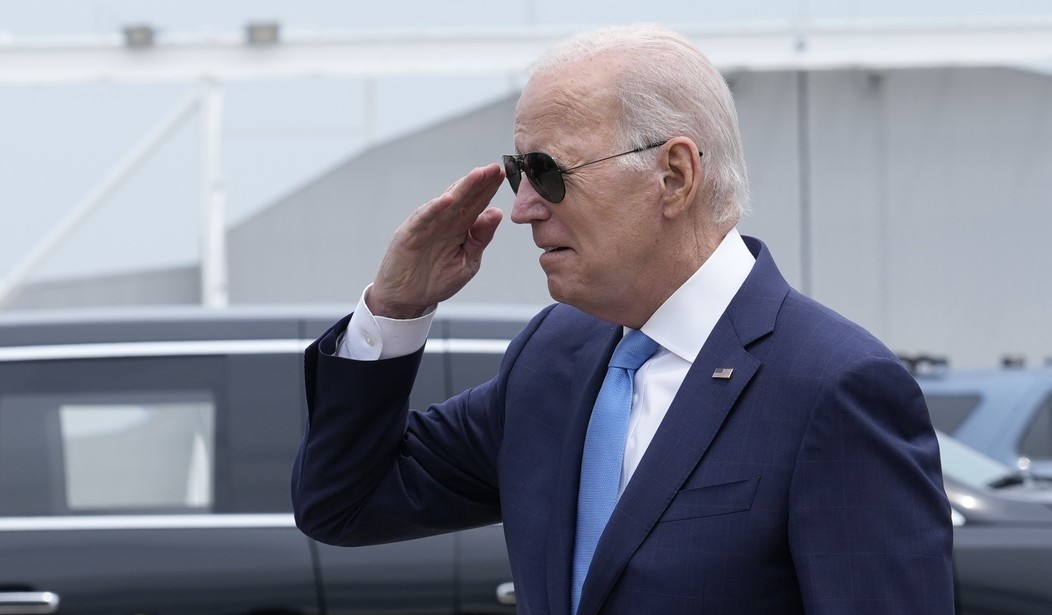The nation’s longest presidential campaign ever passed through halftime without marching bands last year. And we’ve still got 20 jam-packed weeks to go before this thing is over. Don’t even try to imagine what’s yet to come.
With the crucial first presidential debate not coming up for two weeks to help keep CNN afloat, we have a welcome little pause in this epic and potentially historic political struggle between Donald Trump and Shuffles.
Time then for a reminder about something else of little-appreciated but immense import that receives even less attention on this side of the Atlantic Ocean: Europe.
Those countries are going through a series of historic internal struggles right now. They are struggles that will have serious collective impacts on Americans in coming years as we all confront a stubborn, would-be Russian empire run by a ruthless ex-KGB colonel who knows well the skills of division.
I know. I know. Europe is a distant, unique place filled with cute little countries that talk different and architectures that date back centuries longer than Americans can conjure.
Europe is a fun place to visit in summer, even if Taylor Swift isn’t there making millions of fans simply feel good. Hopefully, her three-hour Eras Tour show prompts Europeans to forget the three-day Embarrass Tour of Joe Biden.
He was in France earlier this month, acting as if he knew what was happening. However, he walked away without greeting World War II invasion survivors in wheelchairs gathered one last time to mark the 80th anniversary of D-Day on the Normandy beaches.
Biden was born 11 months after Pearl Harbor and 31 months before D-Day. So, he gets no credit as part of that Greatest Generation. He’s perfect for the role of oldest, dimmest commander in chief in our 247-year and 50-week history.
Last week, Biden flew back to Europe, this time to Italy, for the annual G7 meeting where those leaders assemble expensively to pose for class photos, eat very well with bounteous toasts, and sign documents their staffs already agreed to before the conclave.
It is not a bad thing for leaders of diverse allies with common strategic values and concerns to gather to reaffirm in public their firm unity for adversaries to see and hopefully factor into their own plans.
What is unfortunate, however, is the United States of America was represented by Joe Biden. Our nation’s ongoing global mortification under him began almost exactly three years ago as he delayed, rescheduled, and then colossally screwed up the troop exit from Afghanistan, costing hundreds of lives.
That was a global catastrophe fueled by a prideful disregard for military advice by an arrogant president who never served. Biden’s judgment, behavior, and mental health have only worsened in ensuing months.
Sadly, I can never un-hear my president asked about scores of desperate Afghans being abandoned, clinging to the outside of U.S. planes leaving Kabul before falling to their deaths. Biden dismissively responded, “That was four days ago.”
No genuine human with a functioning mind and gram of empathy, let alone a national leader representing our country to the world, says such a callous thing in public. Since then, Biden has committed scores of similar acts that reveal he is not right mentally.
He has walked out in the middle of a Medal of Honor ceremony. He asks where dead people are at their memorial service. He can’t recall names of people he’s talking with, even with notes in hand. He calls Kamala Harris the president. (God forbid.)
He willfully torpedoed the nation’s energy independence and removed southern border controls, allowing uncontrolled entry and broad dispersal of nearly 10 million illegal immigrants, not all of them Latinos. This week, he will reportedly grant amnesty to many illegals.
Biden has cold-heartedly checked his watch during solemn services for fallen troops. At a happy Juneteenth White House celebration while the audience moved to gospel music, Biden stood motionless, mouth open, arms frozen, a 1,000-yard stare gripping his face.
This president shakes hands with people, even if they aren’t there. At strange moments now, he’s also saluting random people, including Italy’s Prime Minister Giorgia Meloni.
At a G7 leaders ceremony witnessing parachuting troops, Biden turned away and wandered off as if he heard an ice cream truck. Meloni went after the American leader, who looked lost, and gently retrieved him.
This man wants to remain president and alleged leader of the Free World until 2029, when even next January seems far too long. Biden’s deteriorating condition is obvious to anyone whose government job or husband’s position does not depend on his incumbency.
And the implications of this leadership weakness go far beyond foreign TV anchors mocking the American leader with video clips of him stymied by a screen door.
It’s no coincidence that Russia’s Vladimir Putin paused his territorial expansions when Donald Trump was in office, then resumed them in Ukraine a few months after Biden’s inviting Afghan debacle.
China’s militancy over invading Taiwan has heightened during Biden’s sad term. The Houthis are now attacking international shipping in the Red Sea. Iran openly attacked Israel with hundreds of drones to support Hamas’ invasion of Israel.
Russia has dispatched a naval flotilla for exercises with Cuba just off the southeast U.S. coast. Biden so far has drained almost half of the Strategic Petroleum Reserve. And he's not refilling it. He recently released a million gallons of emergency gasoline reserves in New England. All for political purposes.

Neither Russia’s downing of a U.S. drone in international airspace nor China's floating an immense intelligence-gathering balloon across the United States for a week drew any meaningful response from the American commander in chief, whose family has received large, unexplained payments from China, according to the Treasury Department.
The new wave of voter turmoil threatening political establishments across Europe may be coincidental, if you believe in such things.
Recent elections for the European Parliament produced strong movements to the right and nationalist causes. In France, that surge of the right Rassemblement National party prompted President Emmanuel Macron to call two-round, snap national elections for June 30 and July 7.
Belgium’s liberal governing prime minister was forced to resign, igniting precarious coalition talks after the Flemish nationalist party showed unexpected strength. In the Netherlands last fall, voters gave the most votes to the far-right party of Geert Wilders.
In Great Britain, the strongest, most enduring U.S. ally, they will vote July 4 for a new parliament likely ousting or weakening the Conservative Party in favor of the leftist Labour Party.
In Germany, Social Democrat Chancellor Olaf Scholz’s three-party coalition earned fewer votes combined than the conservative opposition as the far-right Alternative for Germany suddenly became the second most popular party.
In Spain, the conservative People’s Party gained nine European Parliament seats. This mirrors the move to the right in Italy two years ago, where Meloni and her Brothers of Italy party have built an unusually stable popular government that also gained seats last weekend.
The Wall Street Journal reported:
Her hybrid of right-wing culture war and establishment-friendly foreign and economic policies could become a model for other far-right parties in Europe that are looking to gain power and broader acceptance.
Putin is showing continued intransigence over realistic negotiations on Ukraine. He is perfectly happy to throw thousands of ill-trained or untrained young men into his bloody “special operation” to ultimately annex Ukraine. He’s counting on unity of the U.S. and the disparate European countries crumbling over time and reducing the military aid that enables Ukraine to resist Russian absorption.
American media has focused on the $175 billion in U.S. aid authorized to assist Ukraine's defense, most of it spent buying weapons and ammo made by American workers. European nations have directed a roughly equal amount to Ukraine to degrade the Russian military and prevent another Russian special operation elsewhere.
Recently, Putin has focused his rhetorical attention on the small Baltic states, which have substantial minority populations of Russians. Allegedly protecting German-speaking minorities was a standard Hitler excuse for annexing parts of Europe in the 1930s.
The Soviet Union occupied Estonia, Lithuania, and Latvia for 51 years after 1940. In an ominous, unannounced move, Russian forces recently removed border marker buoys in the Narva River between Russia and Estonia.
According to a release earlier this month by the Ministry of Defense, Russia is also unilaterally changing the border between Russia and Finland and Lithuania.
The release, also transmitted by Tass, was removed from the ministry’s website soon after without explanation. International interest was heightened because a similar unilateral border adjustment was announced in 2008 when Russia annexed two provinces of Georgia.
During the Obama-Biden administration in 2014, Putin took over Crimea and two eastern provinces of Ukraine, much of which he still controls. The move elicited sanctions, which changed nothing.
Since then, Putin's forces have seized an estimated 20,000 Ukrainian children and shipped them to Russia for adoption.
The significance of any Russian moves on Finland or the Baltic states is that they are now all members of NATO. Article 5 of the 75-year-old mutual defense alliance mandates that each of the 32 member countries is obligated to come to the defense of any attacked member, as they did after 9/11.
Instead of merely sending military aid to help Ukraine resist annexation at no cost in American lives, that would make the United States an active combatant instantly.
Which is why we’re writing about the seemingly distant subject of European politics during a domestic political campaign to elect a U.S. commander in chief who would be faced with this contingency.














